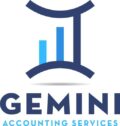Philadelphia’s real estate landscape is experiencing yet another noteworthy transformation. The Philadelphia Housing Authority (PHA) has purchased a property previously associated with student housing but will repurpose it to serve as affordable housing. This decision has important implications not only for the city’s housing market at large but also for local business owners, real estate investors, and the broader community. In this article, we examine the potential impact of PHA’s initiative, explore Zillow data revealing market trends, and discuss essential tax considerations that can help maximize financial outcomes in this shifting environment.
Philadelphia’s Housing Evolution
Philadelphia has long been a magnet for diverse housing initiatives. From well-established neighborhoods undergoing revitalization to emerging areas that promise new growth opportunities, the city continues to draw attention from institutional investors and private buyers alike. The PHA’s latest move—acquiring a building for affordable housing—represents a strategic pivot that underscores the agency’s ongoing mission to provide safe, accessible residences for low- to moderate-income families.
While many cities face mounting pressures to deliver more affordable options, Philadelphia’s challenges can be particularly acute. Rising property values in certain neighborhoods have priced out many long-term residents, intensifying the call for intervention. The PHA’s investment not only helps to address these pressures but also shapes the broader trajectory of the market in ways that can benefit both everyday residents and savvy investors.
The Ripple Effect on Real Estate Investors
Market Stability and Growth
For real estate investors, affordable housing developments often serve as anchors of stability in fluctuating markets. Properties adjacent to or near these projects may benefit from a degree of price support, stemming from consistent demand for rental units and supportive local policies. In many cases, the presence of a reliable housing authority can also boost investor confidence, as government-backed projects come with fewer risks associated with developer defaults or incomplete construction.
Identifying New Opportunities
Philadelphia has distinct neighborhoods, each with its own character and market potential. Investors who monitor where the PHA directs its efforts can spot emerging opportunities. An area that sees new affordable housing developments may eventually attract additional businesses, improved public transportation routes, or even other public-private partnerships. Early entrants—those who purchase properties in surrounding blocks—could see stronger returns if the neighborhood experiences a wave of renewed interest and activity.
Yet, it’s crucial to approach these opportunities with discernment. The success of an investment strategy near affordable housing projects will hinge on understanding local zoning regulations, analyzing the timeline for public works improvements, and anticipating any shifts in community sentiment. Careful research and professional guidance can clarify whether a specific district is on the verge of positive transformation or likely to remain relatively stagnant.
Zillow Data: Key Insights for Philadelphia
Zillow’s market insights continue to highlight a city in transition. Median home prices have risen in many areas, and neighborhoods once considered off the radar have experienced spikes in both investor and consumer interest. The data also suggests that Philadelphia’s real estate market, while competitive, remains more affordable than those in several comparable East Coast cities—making it an appealing choice for investors looking to diversify.
- Steady Growth in Core Neighborhoods
Areas near universities, cultural institutions, and major employment hubs still show consistent value appreciation. However, inventory can be tight, and bidding wars may escalate prices quickly. - Emerging Outer Zones
With the city’s push to develop affordable housing, areas beyond Philadelphia’s central neighborhoods may soon see price shifts. As the PHA invests in specific blocks or corridors, they become more attractive for individuals looking to purchase or rent nearby.
While real-time data is a powerful tool, it’s important to supplement it with on-the-ground research, conversations with local real estate professionals, and insights from tax advisors who understand the city’s distinct regulations.
Capitalizing on Philadelphia’s Affordable Housing Boom
To harness the growth potential that PHA-backed housing often brings, investors and business owners should keep a few strategic points in mind:
- Identify the Right Neighborhood
Focus on areas earmarked for public investment or with noticeable ongoing revitalization. Attend community meetings or planning sessions to gain direct insight into upcoming projects and local sentiment. - Monitor Local Policy
Stay informed about city council decisions and proposals affecting housing. Incentives, grants, and tax credits can be a game-changer for investors prepared to pivot quickly when favorable measures are introduced. - Engage With Community Organizations
By partnering with nonprofits or local development groups, you can tap into deeper market knowledge, gain community support for your projects, and possibly secure funding aid that eases your entry into these areas. - Plan for the Long Haul
Real estate investments near affordable housing often reward patient owners. While some neighborhoods may appreciate quickly, many follow a slower, steadier upward trajectory driven by gradual improvements in infrastructure and economic development.
How Our Accounting Firm Helps You Succeed
Our accounting firm specializes in real estate taxation, equipping clients with the tailored strategies they need to thrive in Philadelphia’s dynamic market. When you partner with us, you benefit from:
- Tax Planning Expertise: We devise strategies to minimize your exposure to municipal and federal taxes, ensuring your investments remain profitable.
- Regulatory Compliance: From navigating the complexities of BIRT and NPT to properly structuring LLCs, our team helps you stay compliant, avoid penalties, and maintain a robust financial footing.
- Market-Informed Guidance: By staying current on city planning, housing authority initiatives, and real estate trends, we offer timely insights that can direct your property acquisitions and development projects toward long-term success.
Whether you already have extensive holdings in Philadelphia or are eyeing your first property in one of the city’s up-and-coming areas, we bring clarity to the tax and financial considerations that are integral to sustainable growth.
Conclusion
The Philadelphia Housing Authority’s new purchase, repurposing a once student-focused property for affordable housing, stands to reshape the city’s real estate narrative. While it addresses a critical need for lower-income residents, it also catalyzes fresh opportunities for entrepreneurial business owners and forward-thinking investors. The key to capitalizing on these developments lies in informed decision-making: understanding evolving market trends, staying vigilant about tax obligations, and positioning yourself strategically around neighborhoods poised for revitalization.
Philadelphia remains a city of neighborhoods, each with its own story and investment potential. As PHA initiatives gain momentum, an influx of stakeholders will likely follow, driving both community and economic growth. Align your real estate endeavors with expert accounting counsel, and you can carve out a profitable, community-conscious role in this new era of affordable housing.

